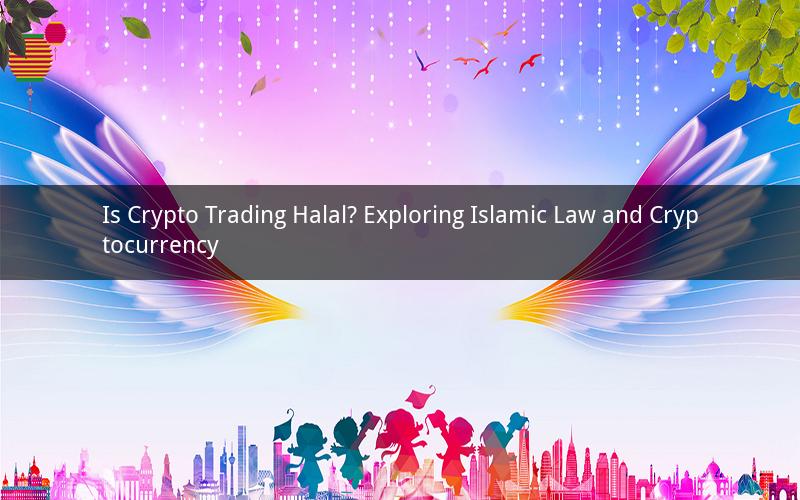
Introduction:
Cryptocurrency has gained immense popularity worldwide, with millions of individuals participating in crypto trading. However, the question of whether crypto trading is halal, or permissible, according to Islamic law, remains a topic of debate among Muslims. This article delves into the principles of Islamic finance and analyzes the legality of crypto trading from an Islamic perspective.
1. Understanding Islamic Finance Principles
Islamic finance operates on the principles of Sharia, which prohibits interest (riba) and encourages ethical and socially responsible investments. These principles guide the financial transactions and investment practices of Muslims. To determine the permissibility of crypto trading, it is essential to examine these principles closely.
1.1 Prohibition of Interest (Riba)
One of the fundamental principles of Islamic finance is the prohibition of interest. Interest is considered exploitative and unfair, as it allows lenders to profit from the borrowing party's financial distress. Cryptocurrency trading involves the use of digital currencies, which do not carry interest, making it potentially compatible with the Islamic finance framework.
1.2 Ethical and Socially Responsible Investments
Islamic finance emphasizes ethical and socially responsible investments. It prohibits investments in industries such as alcohol, gambling, and pork, as well as those involved in harmful activities. To determine the permissibility of crypto trading, it is crucial to assess whether the underlying projects and industries align with these ethical standards.
2. Analyzing the Legality of Crypto Trading
Now that we have a basic understanding of Islamic finance principles, let's explore the legality of crypto trading from an Islamic perspective.
2.1 Digital Currency and Interest
As mentioned earlier, the absence of interest in cryptocurrency trading makes it potentially compatible with Islamic finance principles. However, it is essential to consider other factors, such as the involvement of digital currency exchanges and intermediaries, which may charge fees or interest on certain transactions.
2.2 Ethical and Socially Responsible Investment
The permissibility of crypto trading also depends on the underlying projects and industries. It is crucial to research and ensure that the investments align with ethical and socially responsible principles. This involves investigating the nature of the projects, their business models, and their impact on society.
2.3 Market Manipulation and Volatility
Another aspect to consider is the potential for market manipulation and volatility in the cryptocurrency market. Islamic finance emphasizes transparency and fairness in financial transactions. Therefore, it is essential to ensure that the crypto trading platform and practices promote transparency and prevent manipulation.
3. Opinions and Perspectives
The question of whether crypto trading is halal has sparked various opinions and perspectives among Islamic scholars and Muslims. Here are some key viewpoints:
3.1 Permissibility of Crypto Trading
Some Islamic scholars argue that crypto trading is permissible as long as it adheres to Islamic finance principles. They believe that the absence of interest and the potential for ethical investments make cryptocurrency trading compatible with Islamic finance.
3.2 Concerns Regarding Volatility and Manipulation
Other scholars express concerns about the volatility and potential for market manipulation in the cryptocurrency market. They argue that the high risks associated with crypto trading may not align with the principles of Islamic finance.
3.3 Waiting for Further Clarification
Some Muslims believe that it is necessary to wait for further clarification from Islamic scholars before engaging in crypto trading. They advocate for more research and guidance on the topic.
4. Practical Considerations for Muslims Engaging in Crypto Trading
For Muslims considering engaging in crypto trading, here are some practical considerations to ensure compliance with Islamic finance principles:
4.1 Research and Due Diligence
Before participating in crypto trading, it is crucial to conduct thorough research and due diligence on the projects and industries involved. This includes assessing their business models, impact on society, and alignment with ethical standards.
4.2 Selecting a Halal Crypto Exchange
Choose a crypto exchange that operates ethically and adheres to Islamic finance principles. Look for platforms that do not charge interest on transactions and promote transparency and fairness.
4.3 Diversifying Investments
Diversify your investments to mitigate risks associated with the volatility of the cryptocurrency market. This can help ensure that your portfolio aligns with Islamic finance principles.
5. Conclusion
In conclusion, the question of whether crypto trading is halal remains a topic of debate among Muslims. While some scholars argue that it is permissible as long as it adheres to Islamic finance principles, others express concerns about the market's volatility and potential for manipulation. Muslims considering engaging in crypto trading should conduct thorough research, select halal platforms, and ensure their investments align with ethical and socially responsible principles.
Questions and Answers:
1. What is the main concern regarding crypto trading from an Islamic finance perspective?
Answer: The main concern is the potential for market manipulation and volatility, which may not align with the principles of Islamic finance that emphasize transparency and fairness.
2. Can crypto trading be considered halal if it involves interest on transactions?
Answer: No, crypto trading cannot be considered halal if it involves interest on transactions, as interest is prohibited in Islamic finance.
3. How can Muslims ensure that their crypto trading activities are in compliance with Islamic finance principles?
Answer: Muslims can ensure compliance by conducting thorough research on the projects and industries involved, selecting halal crypto exchanges, and diversifying their investments.
4. Are there any specific Islamic finance principles that can guide Muslims in evaluating the permissibility of crypto trading?
Answer: Yes, the absence of interest, ethical and socially responsible investments, and the promotion of transparency and fairness are key principles that Muslims can consider when evaluating the permissibility of crypto trading.
5. What is the role of Islamic scholars in determining the permissibility of crypto trading?
Answer: Islamic scholars play a crucial role in providing guidance and clarification on the permissibility of crypto trading. Their interpretations and fatwas can help Muslims make informed decisions about participating in crypto trading activities.